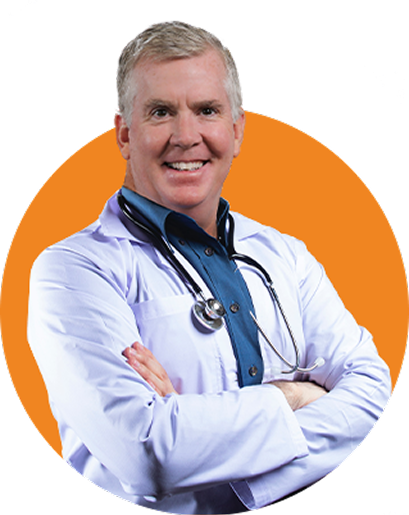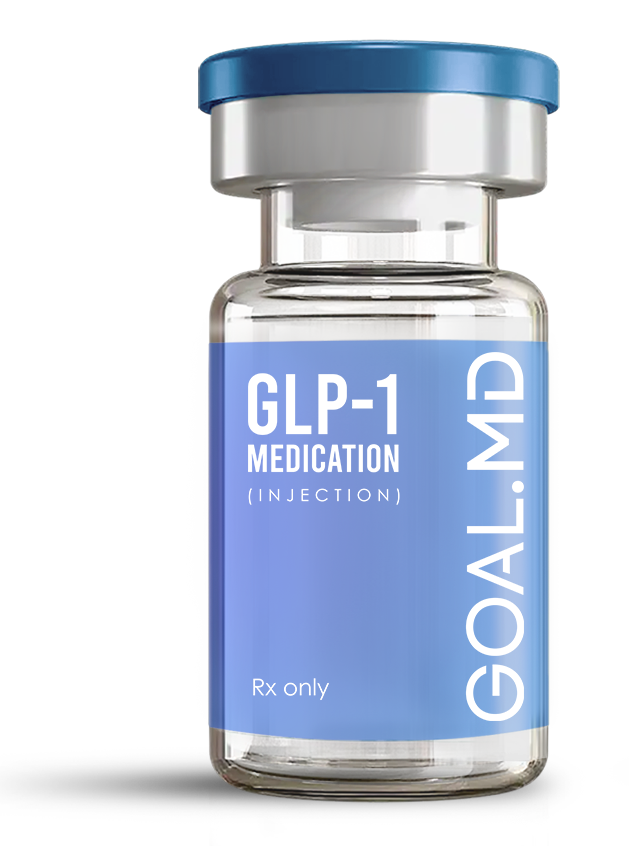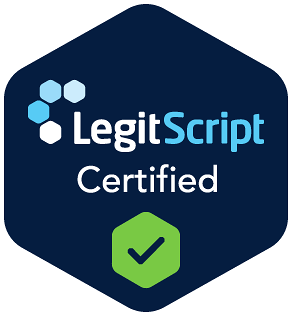
GOAL.MD Health & Wellness Blog
Evidence-based insights, medical weight loss information, and practical tips from our physicians and healthcare experts.

When to Start Exercising on GLP-1s (Even if You’re Still Tired or Nauseous)
Why You Might Feel Too Tired to Move (At First)
During your first few weeks on GLP-1s like semaglutide or tirzepatide, it’s normal to feel a bit off — tired, bloated, or even slightly nauseous. Your body is learning a new rhythm: slower digestion, smaller meals, and new hormonal signals.
That fatigue doesn’t mean you’re doing anything wrong. It just means your metabolism is recalibrating and that takes energy, too.
👉 At Goal.md, patients are encouraged to focus on gentle consistency first, not “gym perfection.

When You Can Safely Start Exercising
You don’t need to rush it. Most people can begin light movement once their side effects feel manageable usually within the first 1–3 weeks.
If your nausea is still strong, give your body time to settle. But once things calm down, gentle movement can actually help reducing bloating, improving mood, and keeping your digestion steady.
✅ Rule of thumb: start slow, listen to your body, and forget what “working out” used to mean. This is a fresh start.
How Movement Helps Your GLP-1 Results
Even light activity can make a big difference:
Keeps your metabolism active and preserves muscle
Aids digestion and reduces constipation
Stabilizes blood sugar and energy
Improves sleep and reduces stress
You don’t need long gym sessions or sweat-soaked workouts. On GLP-1s, less is often more—especially in the beginning.
👉 Goal.md teaches that sustainability always beats intensity.
Best Types of Exercise for the Early Phase
1. Walking or Light Cardio
A short walk after meals can do wonders. It boosts circulation, helps digestion, and gives you a natural mood lift.
Start with 10–20 minutes—no need to push it.
2. Stretching or Yoga
Gentle stretching improves flexibility, relieves tension, and promotes blood flow. It’s also one of the easiest ways to ease nausea or that “too full” feeling.
3. Light Resistance or Bodyweight Workouts
Simple moves like squats, lunges, or wall pushups 2–3 times a week help you maintain lean muscle while losing fat.
👉 Goal.md often suggests adding short “movement snacks” throughout the day—tiny bursts of activity that add up.
If You’re Still Feeling Nauseous—Try This
Feeling off doesn’t mean you have to stay still. You can adapt:
Try exercising at a different time—many patients feel better later in the day.
Keep sessions short and low-impact until your energy rebounds.
Stay hydrated and add electrolytes—low sodium can make fatigue worse.
Avoid working out right after meals; wait 45–60 minutes instead.
At 👉 Goal.md, patients learn how to sync their workouts with their medication—not fight against it.
When You’re Ready to Level Up
Once your energy stabilizes (typically 4–6 weeks in), you can gently increase your activity:
Add short strength sessions
Take longer walks or weekend hikes
Gradually bump up your step count
The key is progress, not perfection.A consistent, low-stress approach keeps your metabolism humming and your results sustainable.
Final Thoughts
Starting to exercise on GLP-1s isn’t about pushing harder—it’s about finding your new rhythm.
The first few weeks may feel slow, but every bit of gentle movement helps your body adapt, lift your energy, and strengthen your long-term results.
If you’re tired or nauseous, you’re not behind you’re adjusting. Listen to your body, move when you can, and take it one small step at a time.
✅ Medically Reviewed by Dr. Michael Fitch, MD
Last Reviewed: October 24, 2025
This article haD physician protocols. Individual results and recommendations may vary. Always consult a licensed clinician before beginning any medical pros been medically reviewed for accuracy and consistency with current clinical practice guidelines. All treatment descriptions reflect real GOAL.MD gram.

Dr. Michael Fitch, MD
Physician, GOAL.MD – Board-Certified in Internal Medicine
Dr. Fitch has treated thousands of patients using evidence-based medical weight-management therapies including GLP-1 and longevity-focused medications. He leads GOAL.MD’s national physician network and personally oversees treatment protocols for weight loss, metabolic health, and nutrition optimization.
👉 Click here and get started with Goal.md
The GOAL.MD blog is published by GOAL.MD, a medical practice dedicated to personalized, patient-centered weight management and metabolic health. Our mission is to make evidence-based care accessible through licensed providers and modern telemedicine services, empowering individuals to reach their health goals safely and sustainably. Any general health information shared on our blog, website, or social channels is provided for educational and informational purposes only. It should not be considered medical advice, diagnosis, or treatment. The content is not a substitute for consultation with a qualified healthcare professional who can provide individualized recommendations based on your specific medical history and needs. GOAL.MD and its affiliated providers make no representations or warranties and expressly disclaim all liability for any loss, injury, or damage resulting from reliance on the information provided herein. If you have questions about your health or a medical condition, please consult with a licensed medical professional before making changes to your medication, treatment plan, or lifestyle.
Why GOAL.MD?
✅ Sourced from audited 503a US compounding pharmacies.
✅ Custom dosages adjusted to your needs.
✅ Free consultation + 24/7 support.

How It Works
1. Quiz
90 seconds. No commitment.
2. Consult
Video chat with your GOAL.MD doctor.
3. Deliver
Meds at your door tomorrow.
Transform Your Life with Physician-Directed Care
Join thousands who've found success with physician-directed care. Take our 3-minute quiz to see if medical weight loss is right for you.







